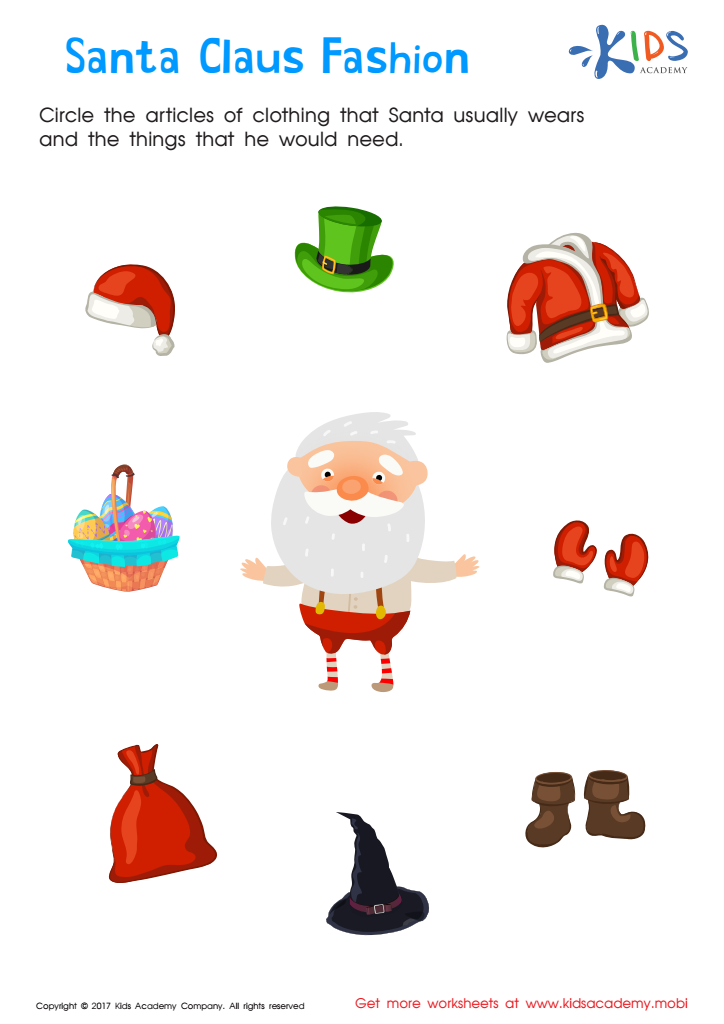Vocabulary development Community Worksheets for Ages 6-9
7 filtered results
-
From - To
Unlock the power of words with our Vocabulary Development Community Worksheets designed specifically for children aged 6-9! These interactive and engaging worksheets encourage young learners to explore and expand their vocabulary through relatable community themes. Your child will enhance their language skills while discovering important concepts related to their surroundings, from local businesses to community helpers. With captivating activities tailored to various learning styles, children will enjoy enhancing their language comprehension, word recognition, and expressive abilities. Foster a love for words and strengthen communication skills with our fun, educational resources. Perfect for home or classroom use, your little learner will thrive!
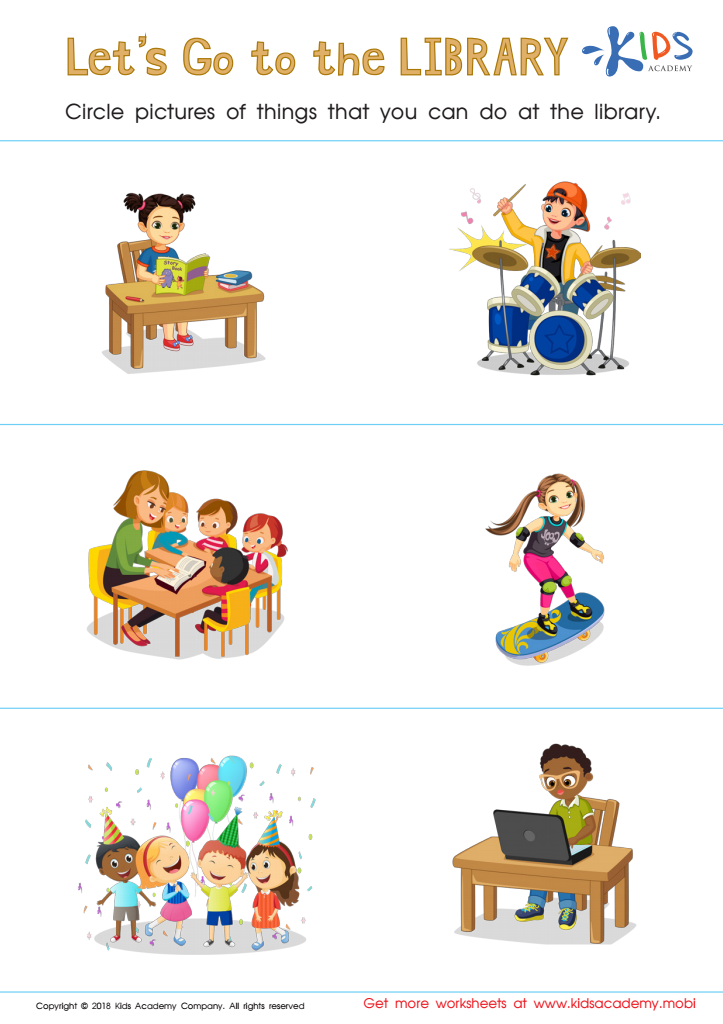

Let's Go to the Library! Worksheet
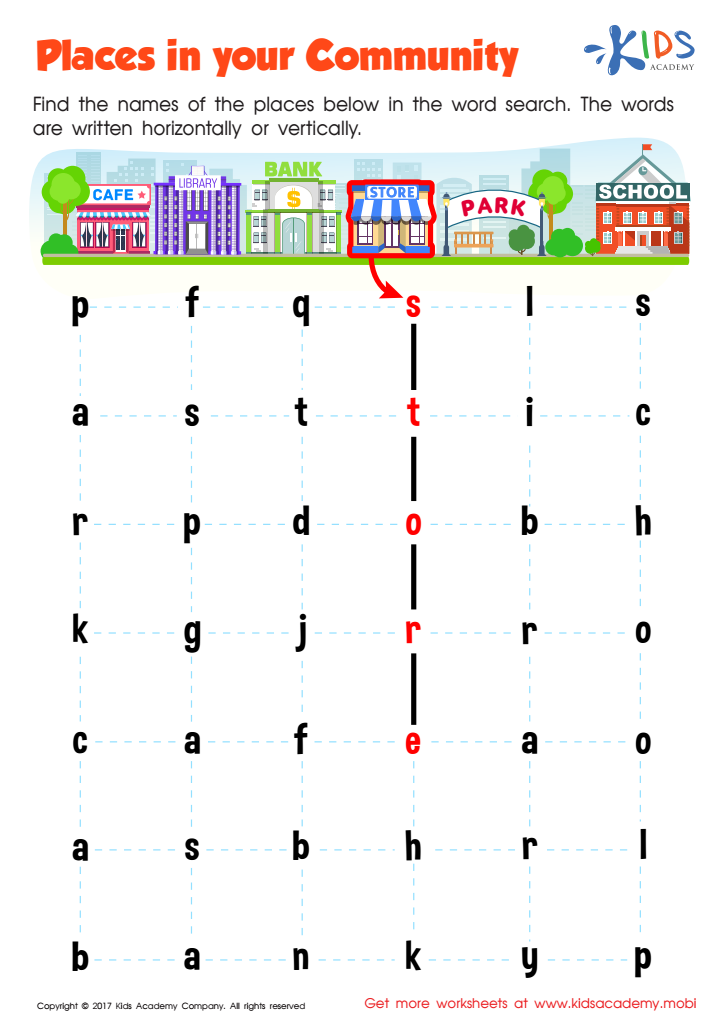

Places in Your Community Worksheet
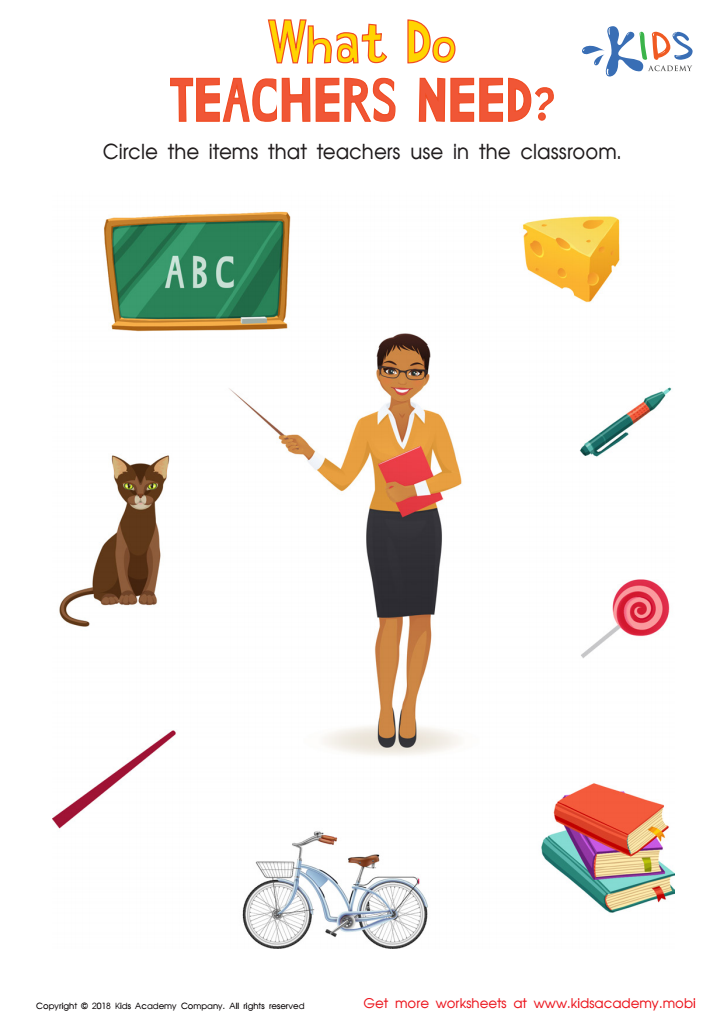

What Do Teachers Need Worksheet
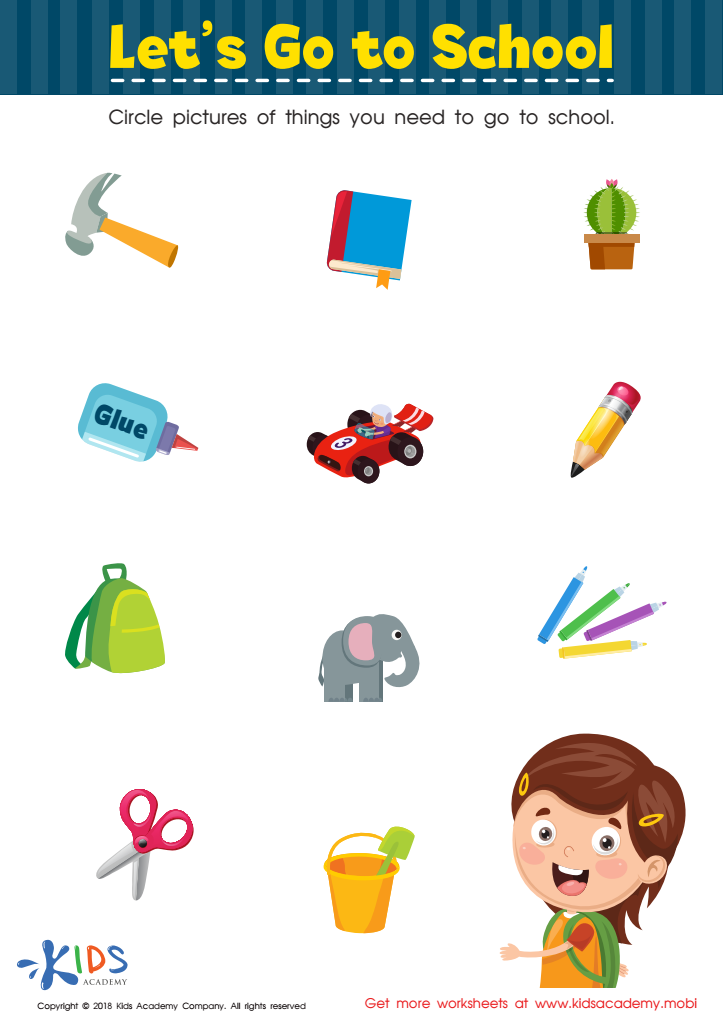

Let's Go to School! Worksheet
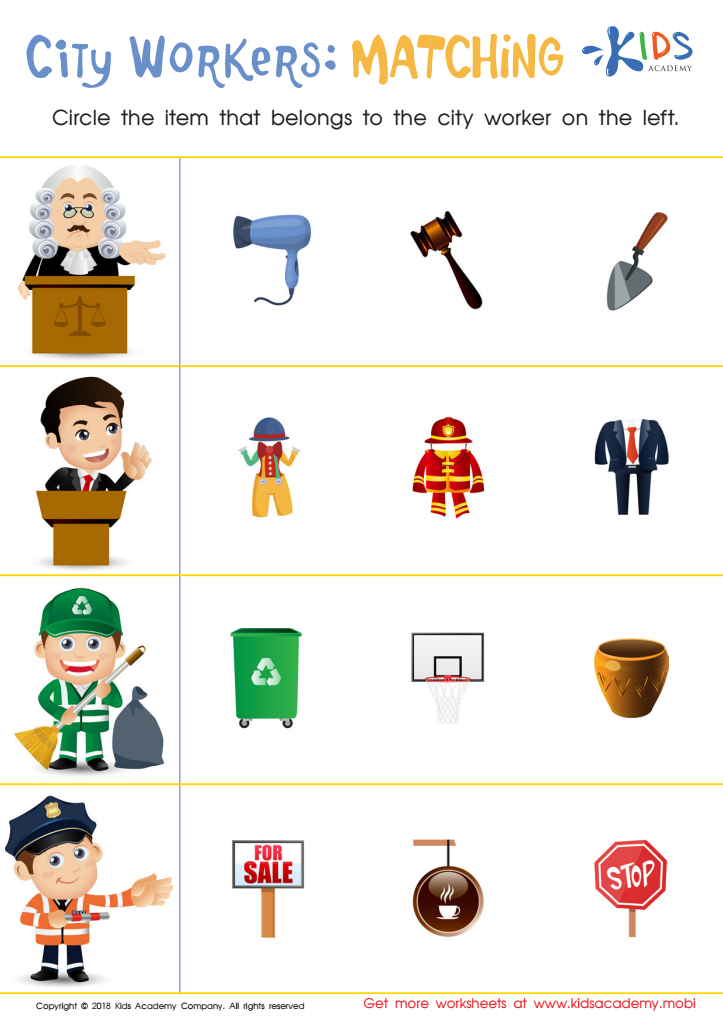

City Workers: Matching Worksheet
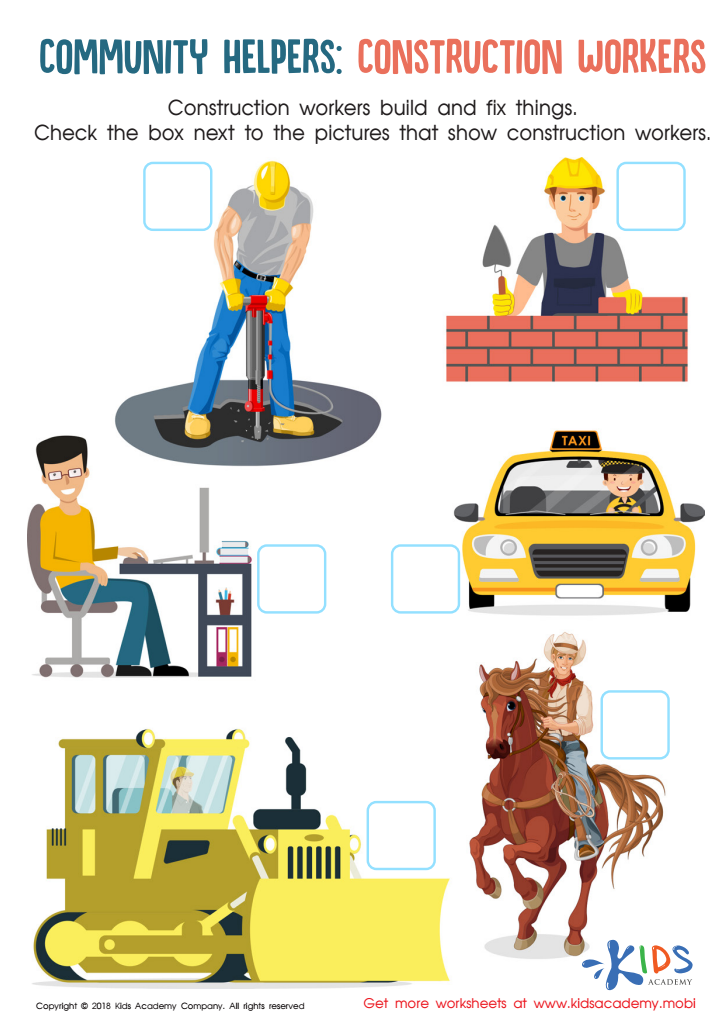

Construction Workers Community Helpers Worksheet
Vocabulary development is crucial for children ages 6-9, as it directly impacts their reading comprehension, communication skills, and overall academic success. During these formative years, children are rapidly expanding their language skills, and a rich vocabulary lays the foundation for literacy and learning across all subjects.
Parents and teachers should prioritize vocabulary development because it fosters critical thinking and enhances social interactions. Children who possess a broad vocabulary are better equipped to express their thoughts and ideas, leading to improved self-esteem and confidence in their abilities. Engaged vocabulary development within the community, such as through reading groups, storytelling sessions, or literacy programs, provides children with diverse linguistic experiences and resources.
Furthermore, active community involvement cultivates a love for language, as children learn from peers and mentors. This collaborative approach can also bridge gaps between home and school, ensuring consistent exposure to new words and concepts. By emphasizing vocabulary development, parents and teachers not only support academic achievement but also nurture lifelong learning and curiosity in children. Ultimately, creating a community committed to enriching vocabulary empowers these young learners to thrive both inside and outside the classroom.
 Assign to My Students
Assign to My Students

